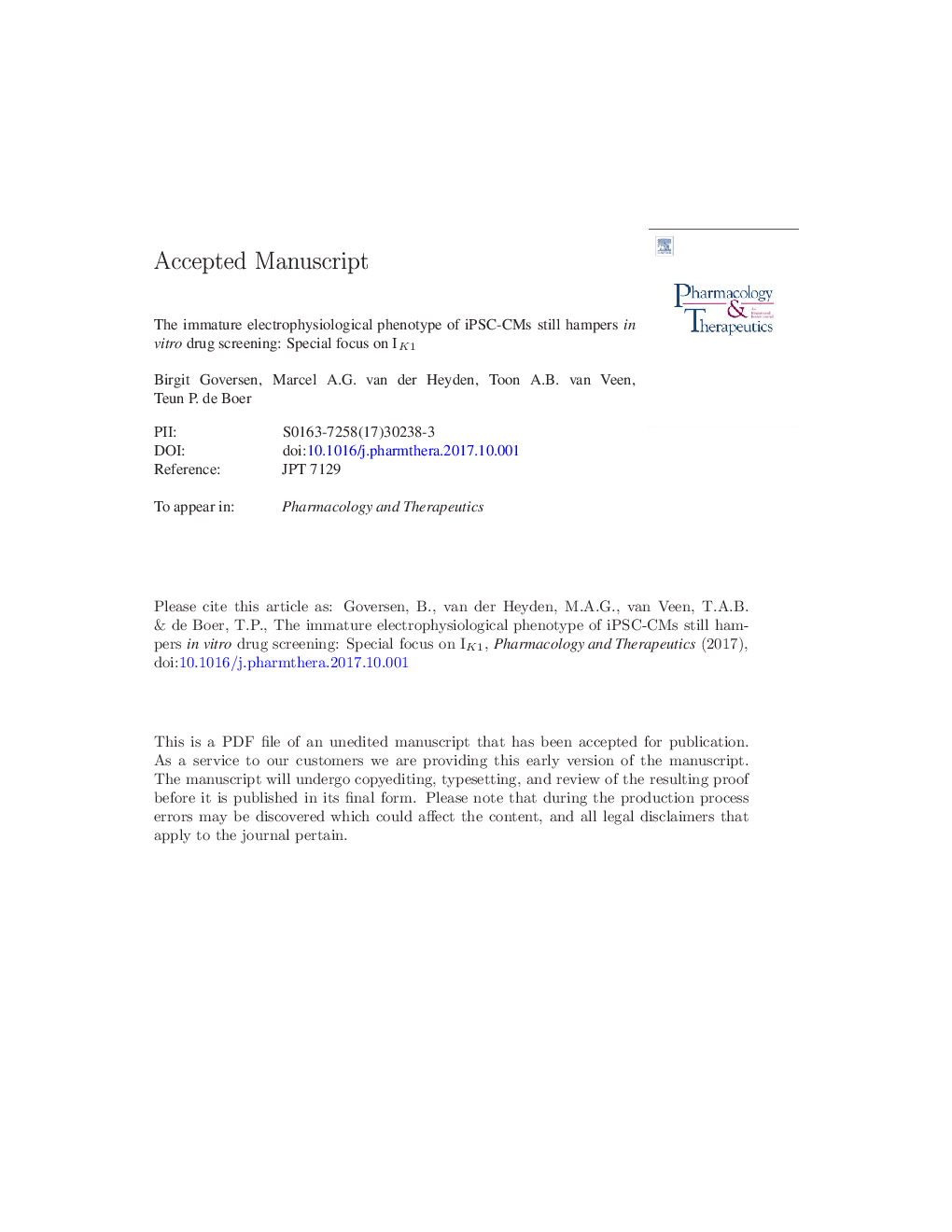| Article ID | Journal | Published Year | Pages | File Type |
|---|---|---|---|---|
| 8536903 | Pharmacology & Therapeutics | 2018 | 42 Pages |
Abstract
Preclinical drug screens are not based on human physiology, possibly complicating predictions on cardiotoxicity. Drug screening can be humanised with in vitro assays using human induced pluripotent stem cell-derived cardiomyocytes (iPSC-CMs). However, in contrast to adult ventricular cardiomyocytes, iPSC-CMs beat spontaneously due to presence of the pacemaking current If and reduced densities of the hyperpolarising current IK1. In adult cardiomyocytes, IK1 finalises repolarisation by stabilising the resting membrane potential while also maintaining excitability. The reduced IK1 density contributes to proarrhythmic traits in iPSC-CMs, which leads to an electrophysiological phenotype that might bias drug responses. The proarrhythmic traits can be suppressed by increasing IK1 in a balanced manner. We systematically evaluated all studies that report strategies to mature iPSC-CMs and found that only few studies report IK1 current densities. Furthermore, these studies did not succeed in establishing sufficient IK1 levels as they either added too little or too much IK1. We conclude that reduced densities of IK1 remain a major flaw in iPSC-CMs, which hampers their use for in vitro drug screening.
Related Topics
Health Sciences
Pharmacology, Toxicology and Pharmaceutical Science
Pharmacology
Authors
Birgit Goversen, Marcel A.G. van der Heyden, Toon A.B. van Veen, Teun P. de Boer,
